- Ẹlẹ́dẹ̀ – Pig @theyorubablog
- Àgùntàn – Sheep @theyorubablog
- Àgùnfọn – Giraffe @theyorubablog
- Àgbánréré – Rhinocerous @theyorubablog
- Ẹkùn/Ògìdán – Tiger @theyorubablog
- Àmọ̀tẹ́kùn – Leopard @theyorubablog
- Ẹfọ̀n – Buffalo @theyorubablog
- Emọ́n – Guinea-pig @theyorubablog
- Ehoro – rabbit/hare @theyorubablog
- Erinmi/Erinmilokun – Hippopotamus @theyorubablog
- Ọ̀bọ/Ẹdun – Monkey @theyorubablog
- Ẹṣin – Horse @theyorubablog
- Ikõkò – Hyaena @theyorubablog
- Ìmàdò – Wildboar @theyorubablog
- Kẹ́tẹ́kẹ́tẹ́ – Donkey @theyorubablog
- Kẹ́tẹ́kẹ́tẹ́ abilà – Zebra @theyorubablog
- Kọ̀lọ̀kọ̀lọ̀ – Fox @theyorubablog
- Eku – Rat @theyorubablog
- Ìjímèrè – Brown Monkey @theyorubablog
- Àjàpá/Ìjàpá – Tortoise @theyorubablog
- Egbin/Ẹtu/Olube/Esuró – Antelope @theyorubablog
- Mãlu – Cow @theyorubablog
- Ìgalà – Deer Stag @theyorubablog
- Erin – Elephant @theyorubablog
- Ewúrẹ́ – Goat @theyorubablog
- Ìnàkí – Baboon/Gorilla
- Ọ̀wàwà – Cheetah @theyorubablog
- Òbúkọ – He-goat @theyorubablog
- Ọ̀yà – Hedgehog @theyorubablog
- Ọṣà – Chimpanzee @theyorubablog
- Ológbò/Ológìnní – Cat @theyorubablog
- Kìnìún – Lion @theyorubablog
- Ràkunmí – Camel @theyorubablog
Originally posted 2013-06-21 22:30:27. Republished by Blog Post Promoter



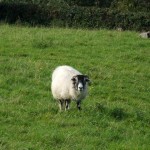
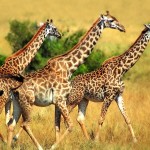
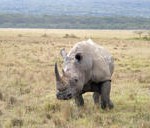

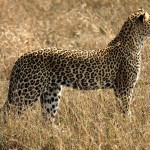
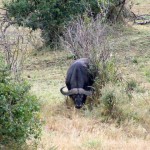
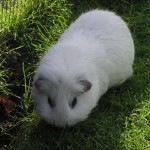
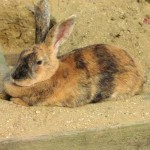
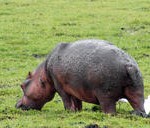
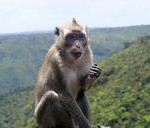
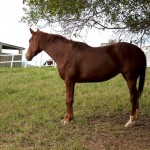
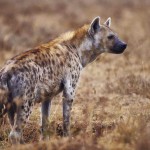

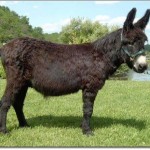
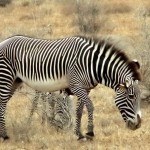

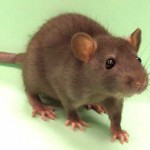
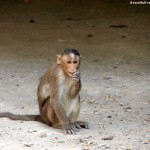
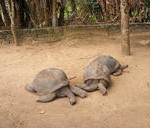
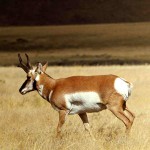
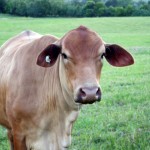
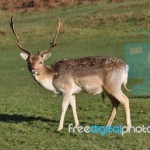
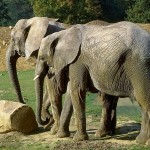
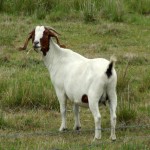
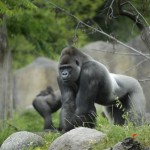
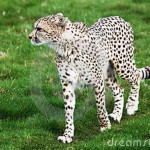
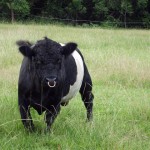
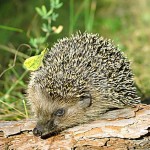
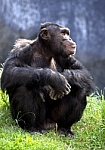
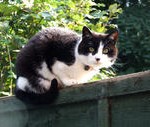
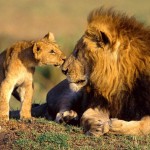
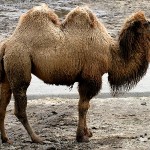

E pele o,e si ku ise takun-takun ti e n se.I really appreciate ur delligence ur consistency 2wards ur blog.mo sakiyesi awon asise kan to waye ninu awon oruko awon eranko ti e se ogbufo re l’oke l’eekan yoo si wu’mi lati se atunse re ni ranpe.bi apeere:Antelope is “igala”,deer is “agburin”e jowo e gbinyanju lati mu awon atunse wonyi lo.my name is tosin& studied yoruba& communication art at d lagos state university.I am a writer.e seun,e si ku ikaramasiki asa ati ise ile oodua.oluwa ko ma kun-un yin l’apa sise o.keep d good work going.thanks
Ẹ ṣé púpọ̀ wípé ẹ tọka-si àṣìṣe lórí “Orúkọ àti Àwòrán Ẹranko”. Nínú iwadi ti a ṣe “Antelope” ki ṣe Ìgala,̀ àwọn orúkọ miran ti Yorùbá mọ̃ si ni: Egbin, ẹtu, olube tabi esuró. “Deer” pe oriṣiriṣi, wọn lè pe Àgbọ̀nrín/Àgbùnrín ni Ìgalà, ṣùgbọ́n ìyaìtọ̀ ni wípé ó ní ilà tabí àbàwọ́n funfun. A o ṣe àtúnṣe ti ẹ ṣe àkíyèsí rẹ yi.
Inú wa yio dùn gidigidi tí ẹ bá lè darapọ mọ́ wa lati “kọ ìwé lórí ohunkóhun ti o le gbe Èdè àti Àṣà ilẹ̀ Yorùbá lárugẹ”. A o tẹ irú ìwé bẹ̃.
Oodua ágbè yín o (Àṣe)
@theyorubablog
Ẹ jọwọ mo fẹ ki ẹ ṣe iwadi ijinlẹ lori agbonrin ati igala. Mo rowipe ọkan jẹ akọ nigbati ikeji jẹ abo.
Oluwa yio maa ran yin lọwọ, gbogbo wahala wa ko ni jasasan.
Ẹ ṣe pupọ. Nigbati mo wo awọn ẹranko ti ẹ kọ soke yii finnifinni mo ri wipe ọpọlọpọ aṣikọ wa nibẹ. Fun apẹrẹ, Rhinocerous kii ṣe agbanrere sugbọn Imọdo, Ẹmọ Eebo ni Guinea pig, Giraffe ni Agbanrere, Hedge-hog kii ṣe ọya, Liili ni. Grass-cutter ni ọya. Ijapa ni tortoise. Ajapa, iru owo ṣiṣe ni kii ṣẹ ẹranko. Awọn a tunṣe yii ko tumọ si aiṣedede ṣugbọn akiyesi pataki ni.
Ẹ ṣe adupẹ.
Olukọ ede Yoruba ni mi ni ile iwe giga ti Afadi ( Harvard University)
You are correct, Hedge-hog kii ṣe ọya, Liili ni. Grass-cutter ni ọya.
Sir, I will like to chat with you. I want to ask u some question.
Why are you asking a question from Sunday Oluokun? He is not the publisher. Just ask your question from the Publisher and Editor of The Yoruba Blog. Many thanks.
E káre púpò, e kú Akin omo ó se.
Ẹ kú ojúmọ́ o,
Ẹ ṣe púpọ̀ fún àtúnṣe ti ẹ tọka si lóri “àwòrán àti pi pè orúkọ ẹranko”. A o tú iwadi ṣe lati ṣe àtúnṣe àwọn akiyesi yi. Ọlọrun yio ma fi ìmọ̀ kún ìmọ̀ fún yin.
Ekù ojúmó o! Olùkó Sunday Olúkòtun, e jòwó kíni à npè ní sháshamùrá
Ọ̀gbẹ́ni Adébáyọ̀, ẹ jọ̀wọ́ a fẹ́ mọ ìdáhùn si ibeere lóri “sháshamùrá” ti Ọ̀gbẹ́ni Sunday Olúòkun fún yin.
Thanks. However, please do more research.
Deer – Agbanrere (Agbanrere yo iwo sarasara lori)
Rhinoceros – Imado
Duiker – Etu (Small antelope with short horn. That’s the one you see being sold on the road when travelling from Lagos to Ekiti/Ondo areas)
Antelope – Igala/Agbonrin
Hippopotamus – Erinmilokun
Eagle – Idi
Hawk – Ogan (O pare bi ogan. Disappear like a hawk. Igan in Ekiti.)
Warthog – Turuku (esi in Ekiti area)
A lot of research was done before “Yoruba Names of Animals” was published. There are various dialect within Yoruba language, hence most animals and birds are called in different names according to the various dialects. For example “Erinmi” – Water/Sea Elephant is more common than “Erinmilokun”. However, your comment will be included when updating. Thanks for your time and comment.
Please what animal is “ikun” as used in the proverb ” aja rahunrahun ni n pa ikun”?
Ẹ ṣé fún ibere yi. Ikún jẹ ẹbi ẹranko ti a mọ̀ si Ọ̀kẹ́rẹ́. Ìyàtọ̀ rẹ ni wi pé ki tètè gbọ́rọ̀ nitori eyi Yorùbá a fi bú eniyan wi pé “elétí ikuín”. Òwe ti ó sọ wi pé “Ajá ráhùnráhùn ni pa ikún”, túmọ̀ si pé ìráhùn Ajá ló lè tètè jẹ́ ki Ikún sún mọ́ Ajá, ki ó tó lè ri pa.
English Translation
Thanks for your question. Ikun is in the family of the squirrel. The difference is that this type of squirrel is noted for its hard hearing/deafness, hence Yoruba uses it as an abusive word, when someone does not respond to a call on time. The Yoruba proverb that says “It takes a grumbling dog to kill the squirrel”, with its continuous grumbling attracts this type of squirrel for a kill.
Ikun – chipmunk
Noted. Thanks.
I think it is also called ground squirrel
It’s Chipmunk
Pls which animal is Mongudu?
Please eran wo la npe ni awawa?
Just want to encourage you to keep up the good work. Needless to say that there are yet lots of grounds to be covered. More grease to your elbows.
E Ku ojumo.
Kin lode to nwon fi ma nso pe ako in Ogidan nbi?
Se Ogidan ko ni abo ni?
Bawo ni nwon se nloyun ti won nbimo ti nwon ko ba bi abo?
E Ku igbiyanju.
Ẹ kú ojúmọ́ o, Ọ̀gbẹ́ni Jimoh,
Ìdáhùn si ibeere nipa Ògìdán
Ògìdán ti a tún mọ̀ si Ẹkùn jẹ́ ikan ninú idilé Ológbò nla. Ògìdán ni akọ, ó si ni abo. Ọ̀rọ̀ Yorùba ni “Ògìdán kò ni ṣe bábà (Alábẹ), ki Ajá dé bẹ̀ lọ gẹ irun”. Itumọ̀ ọ̀rọ̀ yi ni pé, ẹ̀ru ikú kò ni jẹ́ ki Ajá lọ gẹrun lọ́dọ̀ Ògìdán nitori ó mọ̀ pé ó lè pa ohun jẹ.
Gẹ́gẹ́ bi ibere nipa ọ̀rọ̀ Yorùbá ti ó sọ wípé “Akọ ni Ògìdán nbi”, ẹ̀dà ọ̀rọ̀ ni eyi jẹ, ìṣe àti ìhùwà ni Yorùbá fi npe ni lákọ. Yorùbá lè pe Obinrin lákọ bi ó bá gbóyà, ti ó hu iwà akọ, bẹni ọkunrin ti ó bá gbójú ni wọn npe ni akọ. Nitori eyi, ki ṣe pé Ògìdán kò ni abo, ni Yorùbá fi sọ pé “Akọ ni Ògìdán nbi”, Ògìdán ni akọ àti abo, ṣùgbọ́n akọ àti abo Ògìdán ló ni agbára, ti ó gbóyà, ti ó si lè pa ẹranko nla miran jẹ.
Mo ki eyin ojogbon wa. E ku ise takuntakun. Alaye nipa ogidan ti a ri loke yii wuyi. Sugbon alaye ti awon agbalagba se lori re ni wipe ni igba ti ogidan ba sese bimo, bi a ba wo abe(private part) omo na, yio dabi ti ako, bi o ba se n dagba si ni yoo wa maa foju han bi yoo ba je ako tabi abo.E se pupo. I think ogidan is ‘kiniun’ not ‘ekun’
Ẹ ṣé púpọ. Gẹ́gẹ́ bi iwadi wa, Ògìdán ki ṣe Kìnìún, orúkọ miran fún Ẹkùn ni Ògìdán.
E ku asiko yi, e de ku ise takun takun. Akiyesi mi da lori Ekun/Ogidan ti e pe ni Tiger. E jowo, Yoruba so wipe “Butter ki se ounje Obo”, beeni oro pipe Ekun ni Tiger ri. Tiger kii se eranko ti a ni ni Adulawo rara. Asian jungle ni Tiger ngbe. Nipa be, Ekun nilati je Leopard.
In essence, the Tiger is not found in our forests and so could not have been the popular “Ekun” but would rather be either the Leopard or the Cheetah. Since you say Amotekun is Cheetah, it then means Ekun is the Leopard. Note that an animal not being native to a place does not mean we can’t name it. The point is just that given the history and lore associated with Ekun and Amotekun in Yoruba lore and by extension Africa, there is no way Ekun can be referred to as Tiger! It would rather be Leopard please. Kindly let’s dispell this urban legend (with no basis in fact or science) of calling Tiger, Ekun. If you say Amotekun is Cheetah then Ekun is the Leopard.
Thank you.
E ku asiko yi, e de ku ise takun takun. Akiyesi mi da lori Ekun/Ogidan ti e pe ni Tiger. E jowo, Yoruba so wipe “Butter ki se ounje Obo”, beeni oro pipe Ekun ni Tiger ri. Tiger kii se eranko ti a ni ni Adulawo rara. Asian jungle ni Tiger ngbe. Nipa be, Ekun nilati je Leopard or Cheetah.
In essence, the Tiger is not found in our forests and so could not have been the popular “Ekun” but would rather be either the Leopard or the Cheetah. Since you say Amotekun is Leopard, it then means Ekun is the Cheetah. Note that an animal not being native to a place does not mean we can’t name it. The point is just that given the history and lore associated with Ekun and Amotekun in Yoruba lore and by extension Africa, there is no way Ekun can be referred to as Tiger! It would rather be Leopard or Cheetah please. Kindly let’s dispell this urban legend (with no basis in fact or science) of calling Tiger, Ekun. If you say Amotekun is Leopard then Ekun is the Cheetah.
Thank you.
eku ojumo, ejowo nipa igala ati agbanrere ti e me nu ba, ejowo e bawa se alaye won koye wa daada, nitori awon kan nsope agbanrere lo nni iwo lori sarasara, won tun sope igala naa nni iwo lori sarasara,e ranwa lowo lori awon nkan wonyi, e se popu.
Ẹ ṣé fún ibéèrè nipa iyàtọ̀ laarin Ìgalà àti Àgbánréré. Ì̀galà lo ni ìwo lóri ṣaraṣara ju Àgbánréré lọ. Ìwo Àgbánrére jọ ìwo Màálù.
Eku ise takun-takun yìí,
E jowo, Ó we mí láti darapo mo sise akosile ise Yoruba yii. Mo kekoo gboye ninu èdè Yoruba àti ìmò ìbánisoro ni Yunifásitì ìpínlè Èkó (LASU).
Ẹ ṣé fún ìfẹ́ ti ẹ fi hàn lati dara pọ̀ mọ́ wa lati gbé èdè àti àṣà Yorùbá lárugẹ lóri ayélujára. Inú wa yio dùn bi ẹ bá lè ṣe bi ẹ ti pinu nipa ki kọ iwé tàbi àwòrán ayẹyẹ ni èdè àti àṣà Yorùbá fún àyẹ̀wò wa àti gbi gbé si ori ayélujára yi.
Thank you for showing interest in joining us to promote Yoruba language and culture on the internet. We shall be glad if you can fulfil your intention by submitting articles, pictures of cultural events that you want published for editing and publication on The Yoruba Blog.
Ó wù mí**** typographical error.
Thanks.
E ku ise opolo o. Emi naa ki i yin fun ise takun-takun ti e n gbe se ki ede ati aasa Yoruba le maa dagba si i.
Mo fe ki e wo ooko Yoruba fun elede-igbo (wild-pig), tuuku/turuku (Lara oriki re ni eranko a-boko-lenu).
Ẹ ṣeun Ọ̀jọ̀gbọ́n Mákindé, Túùkú tàbi Túrùkú ná à ló njẹ́ ‘Ẹlẹ́dẹ̀-igbó tàbi Ẹlẹ́dẹ̀-ẹgàn’ (wild-boar or wild pig)
Eku ise, Oluwa ama fun yin se.E jowo eranko wo lo n je Gidigidi
Ẹ ṣeun Ọ̀gbéni Adédìran. Gídìgídì ki i ṣe orúkọ ẹranko kan pàtó, o jẹ àpèjúwe fún àwọn ẹranko ti ó ba tóbi, ti ó si ni agbára gidigidi. Yorùbá ma a nfi bú enia ni ìgbà ìjà wi pé alágbára ‘gidi’ bi irú ẹni bẹ́ ẹ̀ bá múra ija.
Please I have a question…….. Kini iyato laarin Erin ati erimilokun ati wipe kiniise awon mejeji
Erin àti Erinmilokun gẹ́gẹ́ bi a ṣe pè é, Erin ngbé ori ilẹ̀, Erinmilokun ngbé inú òkun tàbi odò nlá. A lérò wi pé ìdáhùn yi lè ṣe ìrànlọ́wọ.
Both the Elephant and Hippopotanus are large animals. The elephant lives on the land while the Hippo lives on the sea/ocean. Hope this answer is helpful.
Erin is Elephant while Erinmilokun is hippopotamus
E ku ise takuntakun. E jowo kini oyinbo “anta” ati wipe bawo ni o se maa n pa eniyan lara? ESE pupo
Pingback: There's beauty in the Yoruba naming ceremony - Segilola Salami
E kú akitiyan o òjògbón. Agara kìí dá onísé Olóun, ipá a yín kò ní pin o.
Ẹ ṣé púpọ̀.
E dakun irugbin eranko would ni Yoruba my personal ni oOre. Won a maa power wipe “e mu, e dee, se eranko bi oore wani” iru eranko would wani oorę?
E seun.
Please write your question in English for clarity.
Oore = Porcupine
Mo ki yin o. E si ku ise ribiribi ti e nse lori ede wa, ede Yoruba. Inu mi dun gidigidi nigbati mo ta atare sinu abule yin yi lori afefe lori wipe mo fe mo oruko ti a npe ‘ikun’ ni ede Yoruba. Owe Yoruba so wipe “Ikun n jogede, ikun n redi, ikun ko mo wipe oun t’odun a maa pani.”
E seun.
Adekunle Oshisumi
Ẹ kú ojúmọ́ oni Ọgbẹ́ni Adékúnlé,
Gẹ́gẹ́bi ibere yin, ‘Ikún’ ni ‘Squirrel’ ni èdè Òyìnbó. Ẹ ṣe àkíyèsí itumọ ikún ninú iwé “Òwe Yorùbá” ti Ọ̀jọ̀gbọ́n Oyekan Owómóyèlà kọ wi pé “Ikún ńjọ̀gẹ̀dẹ̀ ikún ńrẹ̀dí; ikún ò mọ̀ pé ohun tó dún ni ńpani”.
As translated by Professor Oyekan Owomoyela in his book on “Yoruba Proverbs”, “The squirrel is eating a banana, and the squirrel is wagging its tail, the squirrel does not know that it is what is sweet that kills”
Ikun kiise Squirrel, Chipmunk ni Ikun.
E dakun dabo. Mo se asise die.
Mo fe mo oruko ti a npe ‘ikun’ ni ede Oyinbo
Chipmunk ni Ikun
E ku ise takun takun ti e nse ni ‘bilogi’ yin. Ori mi wu. E jowo, kini ‘ologomgom’ ni Edee geesi? Abi se ‘mythical’ being ni? E se gidi gan ni
Ẹ ṣé púpọ. A lé rò wi pé ‘Ologomugomu’ lè jẹ́ orúkọ miràn ni èdè Yorùbá ṣùgbọ́n, ara awọn kòkòrò bi eṣú ni.
I think it could be “grasshopper or locust’ in English as it is usually found in grassy areas.
E jowo kini oruko bush baby (galago) ni ede Yoruba.
Mo nife blog yi ni tori wipe mo shey akiyesi wipe atokun re pese idahun so ibere lati Odun to pe. Esuen eku ise takun takun.
Ẹ ṣeun. Èébú ni ká pe ènìyàn ni “Ọmọ-oko” – Calling anyone “Bush Baby” is an abusive language
E ku oju mo o… Mi o gbo do ma sa laid ki yin fun ise takun takun ti e ngbe se. Oba Eleduwa a tun bo ma fi oye kun oye yin o.
Ẹ ṣeun ọmọ Adédòkun
Ẹ ṣeun,àṣẹ àdúrà. Ẹtà jẹ ẹranko ni ìdílé Ẹkùn tàbi Àmọ̀tẹ́kùn ti ó fi ara jọ Ológbò ti ó nfi ọ̀pọ̀lọpọ̀ ọdún rẹ láyé sùn. Ìdí ni yi ti àwọn àgbàlagbà ma a fi ńbú ẹni ti ó bá nfi àsìkò iṣẹ́ sùn tàbi ti ó bá sùn jù ti ó ṣòro lati jí.
E jo wo, ki ni itumo oro yi? “o nsun bi eta” ki eniyan sun bi eta…. E jowo, se eranko ni eta ni? Awon agbalagba ni won ma nlo oro yin lati fi bu eniyan to ma nsun ju. Mo nreti ila ni loye yin
Eranko ni Eta. Eta ni Civet ni ede geesi
Eku ise Takun takun . Ejowo eranko Wo ni won toka si ninu owe abi ofo yi. “A kii fi omo ore bo ore”. Kini nje Ore? we do not offer Ore’s child as sacrifice to Ore. My poor translation.
Ọ̀gbẹ́ni Àyìndé,
Ẹ ṣeun o. “Ọrẹ̀” ki i ṣe ẹranko. Ìkan ninú àwọn òrìṣà kékèké ilẹ̀ Yorùbá ni.
Mr. Ayinde,
Thank you. “Ore” is not an animal. It is one of the Yoruba local deities.
E jowo, Lori oro rhinoceros ni mo wa, awon Jan so pe oun ni imodo, awon miran si so wipe agbanrere ni. Please, for clarity, let everyone contribute to the discussion so that we can know the difference between the Yoruba names of rhinoceros, giraffe, boar and wild pig
Ẹ ṣé fún ibéèrè nipa Àgùnfọn àti Àgbáǹréré. Àgùnfọn ni ọrùn rẹ gùn jù ni gbogbo ẹranko, nígbàtí Àgbáǹréré jọ Ìmàdò tàbi Ẹlẹ́dẹ̀-igbó ni ti tóbi.
Thanks for your question on which animal is the giraffe and rhinoseros.
– The giraffe has the longest neck among the animals, while rhinoseros looks more like Boar or the wild pig in term of their big size.
Also I heard a proverb on Orisun TV some years ago that “bi orun agbanrere se gun to, ko le ri ola” and it was interpreted to mean ‘As long as a giraffe’s neck is, it can’t see the future.’ This means agbanrere was interpreted as giraffe there. So I really want to know if it is giraffe or another animal.
Thanks for the wonderful job
Àgùnfọn ni ọrùn rẹ gùn, Àgbáǹréré jọ Ìmàdò tàbi Ẹlẹ́dẹ̀-igbó ni ti tóbi.
The giraffe has the longest neck, while rhinoseros looks more like Boar or the wild pig in term of their big size.
good job.
please which animal is Ajanaku
Ẹ ṣeun o. Erin ló njẹ́ Àjànakú.
Thanks. Àjànakú is another name for the Elephant just like Erin.
Your blog is of so much help. Thanks a lot. Sorry I’m writing in english. I did so for clarity. Some of us (like me)are 21st century Yoruba speakers.
I would like you to do more research about the identity of agunfon and agbanrere.
I have in the past heard proverbs and sayings that seem to talk about the long necked animal(giraffe) with the name agbanrere sometimes and the name agunfon at other times thus suggesting both names belong to the same animal(the giraffe).
I would not speak with authority on the issue but I am quite sure of what I say, thus I ask for a more expert opinion and I little bit more research.
Thanks a lot for your awesome blog!
Àgùnfọn ni ọrùn rẹ gùn, Àgbáǹréré jọ Ìmàdò tàbi Ẹlẹ́dẹ̀-igbó ni ti tóbi.
The giraffe has the longest neck, while Rhinoseros looks more like Boar or the wild pig in term of their big size.
Thanks a lot for your kind comment. A lot of research is usually done before any publication as a labour of love, hence I am sure of the answer I gave in the above reply. Expressing yourself as a 21st century Yoruba speakers is fine. The purpose of The Yoruba Blog is to encourage and promote interest in Yoruba language for Yoruba speakers in diaspora.
Please kindly help the the English name of ọsi it’s supposed lto be an animal/bird.idk
Sorry I am not clear on this particular question. “Osi”, it could a name of an animal or bird in one of the Yoruba dialects. Kindly give us a background to any other Yoruba dialect you speak in addition to written Yoruba language.
E ku ise opolo. Ibere mi nipa Ekun ni wipe awon ojogbon ni imo eranko wipe Tiger ko si ni ile dudulawo. Bawo ni ase wa ni oruko fun? Se ko dapi pe a gbe oruko eranko miran bi Amotekun fun Ekun ni?
Ẹ ṣeun o. Mo ni ìgbàgbọ́ pé Ẹkùn (Tiger) wà ni ilẹ̀ Aláwọ̀dúdú tẹ́lẹ̀. Pi pa ẹran ìgbẹ́ fún ji jẹ ti ó wọ́pọ̀ tẹ́lẹ̀, ti lè jẹ́ ki Ẹkùn àti àwọn ẹranko ti ó wà ni ayé àtijọ́ parẹ́.
Lórí òrò Ẹkùn tí ìbéèrè wáyé lórí rẹ̀ ni mo fẹ́é dásí. Ẹkùn ń bẹ nílẹ̀ Yorùbá télètélè.
Ọba Aláké ti Ìlú Ègbá kan wà tí a ń kì ní “Ọmọ Ẹkùn…”. Bákan náà ni ó wà nínú Oríkì
Orílẹ̀ tèmi pàápàá. T´ ó bá ṣe pé kò sí Ẹkùn ní ilẹ̀ Yorùbá ní ìgbà ìwáṣẹ̀ ni, irúfẹ́ oríkì
bẹ́ẹ̀ kò ní í wáyé.
Ìbéèrè àti àríyànjiyàn ti ńwáyé lóri wí pé kò si Ẹkùn ni gbogbo orilẹ̀-èdè Aláwọ-dúdú. Pẹ̀lú bi Ọ̀jọ̀gbọ́n Mákindé ti ó ni òye ìtàn Yorùbá ti ṣe àlàyé yi, yio yanjú ọ̀rọ yi. Ẹ ṣeun o. Ẹ jọ̀wọ́ ṣé a lè kàn si yin fún àwọn ìbéèrè ti ó bá rú Olùkọ̀wé yi lójú?
Pingback: I just had to write a review of the Black Panther movie - Segilola Salami
I hope our publication on Yoruba names of Animals has been of any help in your review of The Black Panther? Keep up the good work.
E ku ise takuntakun, e ko ni ba igba lo lase Edua.
Eta ni koko ta, ki gbogbo omo eranko yoku toota, eranko wo ni eta – e lami loye.
NI ti atotonu Lori Agunfon, mo kiyesi pe, ohun ti Ogun ki o to fon ni eranko Agunfon, eyin dogba pelu owe nipa Erin to wipe, erin kiifon ki omo e fon,
Akinwale Akintade loruko mi
E jowo o wu mi lati mo nkan ti Yoruba npe ni “Alake” yato si oruko oba ni ile Egba, Yoruba yio ni ogangan ona ni Alake nso. Se eranko ni Alake ni? Abi kokoro, abi eweko, e jowo lami loye Lori e
This is beautiful!
Kindly make this blog site more interactive and educative. Invest in research and see this site becoming an authority in the nearest future. I so much love all the comments. Thanks for bringing something like this to the public forum.
Thanks for your kind comment and suggestion. My time as an individual on research has been a labour of love as all efforts to encourage others to come on board has not been successful. However, with the encouragement from you and other readers, I can not give up.
This is an educative blog, i learnt a lot in few minutes,job weldone to the admin.please what is the yoruba word for kangaroo, thanks
Thanks for your encouraging message. Unfortunately, Kangaroo is not a native African animal as it is only found in Australia hence there is no Yoruba name for it. However, Yoruba do have derivative names for unfamiliar objects. Example, Kangaroo can be called “Kangarú”. Hope you find this response useful.
Thanks for your respone, someone was told me Kangaroo is referred to as shashamura(as in the yoruba proverb: apo shashamura o gbe ri). I just wanted to be sure because i recently told my husband the yoruba name for kangaroo is shashamura. i goofed
You are welcome. Kindly ask an elder in the family to tell you the meaning of “ṣaṣamura”, there is no “sh” in Yoruba alphabet hence, but “ṣ” is often represented by “sh” by younger Yoruba speaker. The word could also be a dialect within the Yoruba enclave. Please update us with the meaning.
Many thanks.
Good job. Kindly confirm the names of these animals in English: 1. Elegede, 2. Aginliti 3.Obo Langido 4. Eta 5.Ologede and 6. Ofafa 7. Okere. Thank you
Thamks for your enquiry. Please check the English names of these animals on http://www.theyorubablog.com
1. “Elégede” is pumpkin (not an animal).
2. “Agiliti” is a rough-skinned (iguanid) lizard.
3. “Ọbọ” is monkey, and “lagido” is a mere suffixal qualifier; a compound word too.
4. “Ẹtà” is a kind of leopard.
5. “Olegede”? Perhaps a dialectal variation to Item 1.
6. “Ofàfá” is a (tree) hyrax (similar to a rock rabbit).
7. “Ọkẹrẹ” is squirrel.
Mo ro wipe Eta ni Civet. Civet actually look much like leopard.
Eekale oo , moni lo ede geesi fun eranko ti a npe ni Aanta (English)?
Ẹ ṣé fún ibere yi, mi ò̀ mọ ẹranko ti ó njẹ́ “Aanta” ni èdè Yorùbá nitori náà kò ṣe túmọ̀ si èdè Gẹ̀ẹ́si. Ó ṣe ṣe ki irú ẹranko bẹ́ẹ̀ ni orúkọ miràn ni èdè Yorùbá.
Thanks for your question, unfortunately, I am unfamiliar with “Aanta” as a name of animal in Yoruba, hence I am unable to give this name in English. It is possible that such animal has another name in the written Yoruba.
Please, I think anta is called alligator in English language.
Thanks,
Adenike.
‘Anta’ is not alligator, alligator is a large amphibious reptile with sharp teeth and very strong jaws closely related to crocodile.
‘Anta’ is Monitor lizi
Anta is monitor lizard
Noted.
Noted.
W hat is the meaning of this ” ìmọ̀dò bá se bí ẹlẹ́dẹ̀ á bàlú jẹ́”
Please read the English translation of the above Yoruba proverb to be able to understand the meaning. Thanks
@ Olusola. Anta is Alligator. Some Yoruba tribe also call it Ahonrihon(e.g Ondo area)
Thanks for your contribution on other names for Alligator in Yoruba.
Mo fi towotowo praying ki e bawa dasi Wikipedia ti ede Yoruba. Ti e ba n nilo iranlowo, ekansimi.
https://yo.wikipedia.org/wiki/Ojúewé_Àkọ́kọ́
Please explain further what you want The Yoruba Blog to do with regards to contributing to wikipedia.org. I do refer to Wikipedia from time to time.
Ko si Tiger ni africa. Ekun is not Tiger.
Ẹ ṣé fún akiyesi yi.
Thanks for this observation. I do consult at least three Yoruba Dictionaries and other sources before publication. Leopard is referred to in Yoruba as “Àmọ̀tẹ́kùn”, and sometimes as “Ẹkùn”, just as Tiger is called “Ẹkùn”. Many wild African animals has gone into extinction due to hunting (bush meat) and poaching. Just as all human race had their origin in Africa, Tiger must have existed in Africa before migrating to Asia. Currently it takes Animal Right Movement abroad to fight for the preservation of African Elephants who are being poached and killed daily for their tusk which is being exported to China as Ivory.
E Ku ise takuntakun ti e se Lori oruko awon eranko wonyi. Sugbon ohun ti o ya emi lenu ni bi awon eniyan se n so wipe ko si ekun, nitori nigba ti emi wa ni kekere ti mo lo si ogba awon eranko(zoo) ni ibadan .mo ri ekun ( tiger) mo si ri amotekun (leopard) gege bi o se wa ninu aworan ti o wa ni oke yi. The one with line was called tiger while the dotted one was called leopard. That was like 35years ago
Ẹ ṣé fún akiyesi yi.
Thanks for this observation. I do consult at least three Yoruba Dictionaries and other sources before publication. Leopard is referred to in Yoruba as “Àmọ̀tẹ́kùn”, and sometimes as “Ẹkùn”, just as Tiger is called “Ẹkùn”. Many wild African animals has gone into extinction due to hunting (bush meat) and poaching. Just as all human race had their origin in Africa, Tiger must have existed in Africa before migrating to Asia. Currently it takes Animal Right Movement abroad to fight for the preservation of African Elephants who are being poached and killed daily for their tusk which is being exported to China as Ivory.
Alaafia
Appreciate the information
I would like to know the proper term for Lepoard
And where did you get your information to attest this term as I heard leopard is ‘Ekun’
Also what does the leopard mean to Yoruba society or within the sphere of our culture ?
Is there any folklore or Yoruba proverbs that mention leopards ?
Adupe
Ẹ ṣé fún ìbéèrè yi.
Thanks for your questions. I do consult at least three Yoruba Dictionaries and other sources before publication. Leopard is referred to in Yoruba as “Àmọ̀tẹ́kùn”, and sometimes as “Ẹkùn”, just as Tiger is called “Ẹkùn”. Yoruba culture associates bravery with “Ẹkùn” as indicated in some Yoruba folklores (refer to Yoruba folklore under Folklore on “Ẹ̀rù ló ba ọmọ Ẹkùn ti ó fi di Ológbò ti o nṣe ọdẹ Eku kiri” on http://www.theyorubablog.com
Hope this response addressed your questions.
E ku ise takun takun, inu mi dun pupo fun laa la wa ki Ede Yoruba ma baa pare.
E joo, moro pe itumo eranko Imado ni Ede geesi ni Warthog. E dakun e ba mi tan imole sii. Modupe.
Ọ̀gbẹ́ni Ayílárá, ẹ ṣé fún ibéèrè nípa ìtumọ̀ orúkọ ẹranko ti ó njẹ́ Ìmàdò ní èdè Gẹ̀ẹ́si. Ki a tó kọ ìwé, a ma a nṣe iwadi gidigidi. Ni gbogbo iwadi ti a ṣe orúkọ Ìmàdò ní èdè Gẹ̀ẹ́si ni “Wild Boar”.
Eranko wo ni onje eranko eme.
Ẹ ṣé fún ibere yi. Mi ò mọ ẹranko ti o njẹ “eme” Inú mi á dùn ti ẹ bá lè ṣe iwadi ni ọ̀dọ̀ àwọn àgbà ibi ti ẹ ti gbọ́ orukọ yi, ki ẹ jẹ ki a gbọ́ èsì.
Eku ise takuntakun ti e NSE. E jowo,mini etu ni see geesi?
Ẹ ṣé fún ibere yi. Etu ni ede Geesi ni “is a type of Antelope”.
I really appreciate you for your contribution to Yoruba knowledge especially on Animal names. I did a mini project on dictionary of Animal names (Lexicography) during my masters program at University of Ilorin. I consulted a particular and well known hunter in Ilorin then and I was able to gather like 200 different names of animals. But I discovered that there isn’t a concession among the scholars about majority of those names. There should be a workshop or conference to address this. We also need Yoruba encyclopedia. I heard some scholars are working on the encyclopedia in US. Don’t know how true that is. Back to the subject. We need to agree on a particular name for each animal we have in our environment and we can borrow words for foreign animals. What I also discovered in my research is that we don’t have tiger in our environment here so that word “ekun” Might refers to leopard or other family of big cats. Also if you have any publications on animal names pls let me know.
Thank you for contributory comment. From experience, names of animals differ from one ethnic group to another in Yoruba Region. Your suggestion on holding Workshop or Conference is a very good idea to reach a concession on updating the names of animals. It is not impossible that Harvard or other prominent Universities in the United States may be putting up a Yoruba Encyclopedia as Nigerian Universities have put research work in the back burner. On the issue of Tiger, it is not impossible that this animal might have existed in Nigeria in the past but as a result of poaching and animal hunting, it might gone into extinction. About fifty years ago, Hunters still kill and bring home elephant meet and they are honoured for being a bold hunter. I doubt if there is any elephant left in Yoruba forest. The names I have is what I have published on http://www.theyorubablog.com as well as on theyorubablogonline on Youtube. Thanks.
I really appreciate you for your contribution to Yoruba knowledge especially on Animal names. I did a mini project on dictionary of Animal names (Lexicography) during my masters program at University of Ilorin. I consulted a particular and well known hunter in Ilorin then and I was able to gather like 200 different names of animals. But I discovered that there isn’t a concession among the scholars about majority of those names. There should be a workshop or conference to address this. We also need Yoruba encyclopedia. I heard some scholars are working on the encyclopedia in US. Don’t know how true that is. Back to the subject. We need to agree on a particular name for each animal we have in our environment and we can borrow words for foreign animals. What I also discovered in my research is that we don’t have tiger in our environment here so that word “ekun” Might refers to leopard or other family of big cats. Also if you have any publications on animal names pls let me know.
Thank you for contributory comment. From experience, names of animals differ from one ethnic group to another in Yoruba Region. Your suggestion on holding Workshop or Conference is a very good idea to reach a concession on updating the names of animals. It is not impossible that Harvard or other prominent Universities in the United States may be putting up a Yoruba Encyclopedia as Nigerian Universities have put research work in the back burner. On the issue of Tiger, it is not impossible that this animal might have existed in Nigeria in the past but as a result of poaching and animal hunting, it might gone into extinction. About fifty years ago, Hunters still kill and bring home elephant meet and they are honoured for being a bold hunter. I doubt if there is any elephant left in Yoruba forest. The names I have is what I have published on http://www.theyorubablog.com as well as on theyorubablogonline on Youtube. Thanks.
ejo kini oruko kokoro yi ni ede geesi, kokoro oun wa loko ti a n pe ni ewoo
Ẹ má bínú o, mi ò mọ èsì ibere yi.
E se pupo I never knew the name of those animal in Yoruba until I check it now mo dupe pupo lowo yin God will continue to assist you
Àṣẹ o. E seun Ọ̀gbẹ́ni Kazeem. – Amen. Thanks Mr. Kazeem.
Ejo sir, kín Yorùbá npe ni AKO? Gegebi àti lọ ninu owe yí… Ojo kí nro ko pa ino ako…..
Ikun n’jogede,Ikun n’redi amo Ikun o mo pe ohun tio ba dun,a maa pani.Ejowo,Olootu Eto,kini Oruko Ikun ni ede geesi? Mo dupe pupo lati darapo mo yin Lati gbe ede ati asa Yoruba de ibi giga..Ki awon tio da’ye pelu a won ti won NSE akoso Aye fi ase so.Amin
Chipmunk ni Ikun ni ede geesi.
E Ku ise takuntakun o.Yoruba a gbe gbogbo wa o lagbara awon tio da’ye
Ẹ ṣeun Ọ̀gbẹ́ni Òjó, àṣẹ àdúrà.
E seun pupo. Oye yin a maa posi lagbara odumare.
Ẹ ṣeun Ọ̀gbẹ́ni Ọlátúnjí, àṣẹ àdúrà.
E jowo ki ni gee si Ewuju
Orúkọ miràn ti a mọ Òkété si ni Ewújù.
Oruko miiran fun Oya ni Ewuju, kiise ti Okete.
Ewuju naa ni Oya ti geesi re nje Grasscutter
Cheetah kí ṣe owawa, nítorí kín ṣe ẹran tí àlè rí nínú igbó lásán aginjù tàbí asale ni wọn má nwa, wọn si je molebi ologini, sugbon owawa je ẹran tí aleri nínú igbó etile, wọn si má ngbo bí ajá, bẹ orí igi ni wọn má nwa ni asale.
Iwadii ti emi naa fihan pe Owawa je Tree-Hyrax.
E ku ise o. E jowo eranko wo ni oruko re nje Agilinti?
Nipa iwadi pelu awon agba to won gbe ni oko, Agilinti ni Iguana.
Weldon, may God continue to be with u, i so much love this, i think (ETA) or Aja Igbo is called Wolf in English. Thanks
Ejowo, eranko wo ni o nje “afemojo”?
Ese pupo. Eku use takun takun!
Ẹ ṣeun o. “Afemojo” lè jẹ́ orúkọ ẹranko ni àwọn èdè ibilẹ̀ Yorùbá, ṣùgbọ́n, a ṣe iwadi, a kò mọ irú ẹranko yi –
Thank you. “Afemojo” is probably animal name in some of the Yoruba dialects. The Yoruba Blog is not familiar with this animal.
Ejowo kini oruko oyinbo eranko to won pee nii eeya?
Eku ise oo, ejo kinni oyinbo mosia